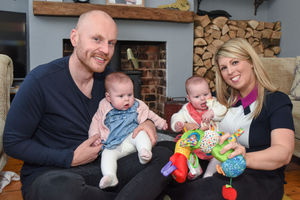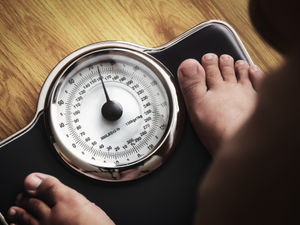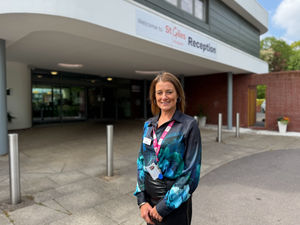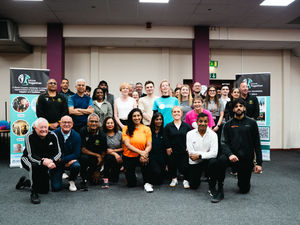Miracle twins defy the odds to survive
These miracle twin girls defied the odds after being given just a five per cent chance of survival – thanks to a life-saving operation while they were still in the womb.

Keziah Harvey, aged 30, found out at 16 weeks pregnant her unborn babies had Twin to Twin Transfusion Syndrome [TTTS] – a condition which affects the blood flow between identical twins while in the womb.
It left the pair, who were 17 per cent different in size, with an extremely low survival rate unless they underwent pioneering laser ablation surgery to even the flow of blood from the placenta.
Thankfully Keziah, from Cannock, took the risk to undergo the surgery despite a 70 per cent chance she would lose one or both of the babies during the op.
Her healthy girls, Matilda and Felicity, were born on July 29 last year weighing 3lb 7oz and now the former dental practice manager and husband Jordan, 33, couldn’t be more proud of their two little miracles.
Keziah, who suffered a miscarriage before the twins were conceived naturally, said: “Without the surgery my odds were around 95 per cent that I would have lost them and then with the surgery it was about 30 per cent they would both survive.
“It was such a shock – I had only just found out I was having twins and then I might have lost them.
“Now, I feel the luckiest mum in the world – I’m so happy and just enjoying every minute.”
After the babies were diagnosed with TTTS, Keziah was referred to Birmingham Women’s Hospital where her doctor, Professor Kilby, advised she undergo laser ablation surgery to balance the blood flow between the two babies.
Before the laser ablation surgery, there was a 17 per cent difference in size between the twins due to one taking more of the flow of blood than her sister.
Incredibly, after Keziah woke up from the surgery Jordan, a window fitter, was able to give her the incredible news they were having girls after watching the op on an ultrasound screen.
She said: “A laser beam was used to laser the blood vessels in the placenta to help share the blood flow evenly and help the babies grow at the same rate.
“I had the laser ablation and sedation while Jordan was able to hold my hand and got to watch it on the screen the whole time.
“It was amazing he could watch them on a camera from inside my tummy and see all their teeny tiny features and little faces; I came around knowing we were having two little girls.
“After the op, The next few weeks were crucial and I was being scanned every few days; taking it a day at a time and scan by scan was all that kept me going. I just lived for my next scan waiting to know if my babies were OK.”
At 24 weeks into her pregnancy, Keziah and Jordan waited to find out if the laser ablation surgery had caused any brain damage to the babies through an MRI scan.
They discovered one of the girls had suffered a stroke prior to the op taking place – and following doctors’ concerns were asked if they wished to terminate the pregnancy – which they didn’t think twice about saying no to.
Keziah said: “It was so nerve wracking waiting to find out and we were concerned when we were told one of the girls has a stroke prior to the surgery taking place.
"The doctor was able to discuss the parts of the brain that may have been damaged; but as a baby’s brain is still growing, a stroke isn’t as final for babies as adults and their brains learn to grow new pathways to replace some of the parts damaged.
"We wouldn’t really know the long term effects of the stroke until the baby grew and perhaps struggled with certain milestones.
“When we were offered a termination, the answer was always no, no matter the severity or the circumstances we would be faced with.”
At 32 weeks pregnant, Keziah gave birth to the twins on 29 July, 2018, after 10 hours in labour and an emergency Caesarean section.
Matilda and Felicity then spent four weeks in the neonatal intensive care unit of Wolverhampton's New Cross Hospital with Keziah spending her 30th birthday in the hospital with them.
She said: “It was lonely sitting next to their incubators all day not being able to help them – it is never how you imagined those first precious moments as a mummy.
“We could only put our hands in the incubators to hold the girls hand for a very short time and we had to wait for their temperatures to stabilise before we could hold them.
“Seeing them so tiny covered in wires and tubes, monitors and cannulas was hard to see.”
But eight months on, the girls are healthier and happier than ever and are developing well.
Keziah added: “They are making great progress and the consultant is happy with their development so far. I’m so thankful to Professor Kilby and the amazing teams at New Cross and Birmingham Women’s Hospital.”





